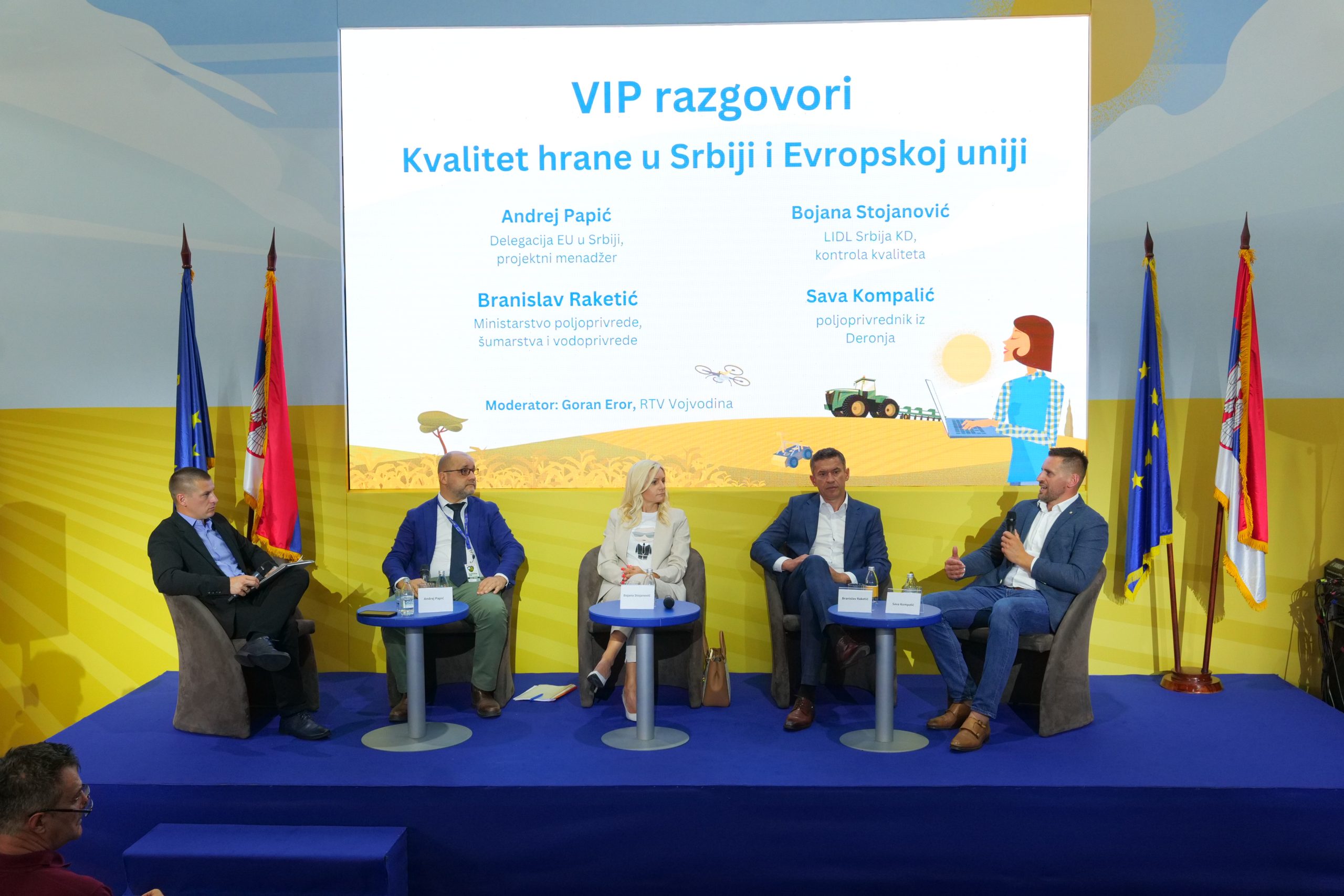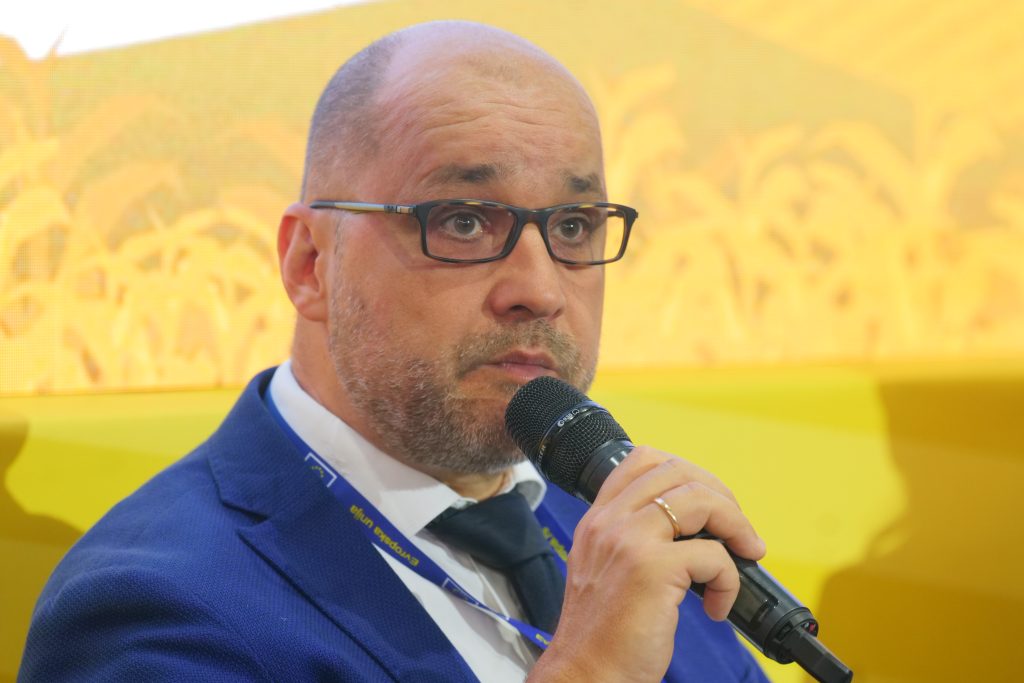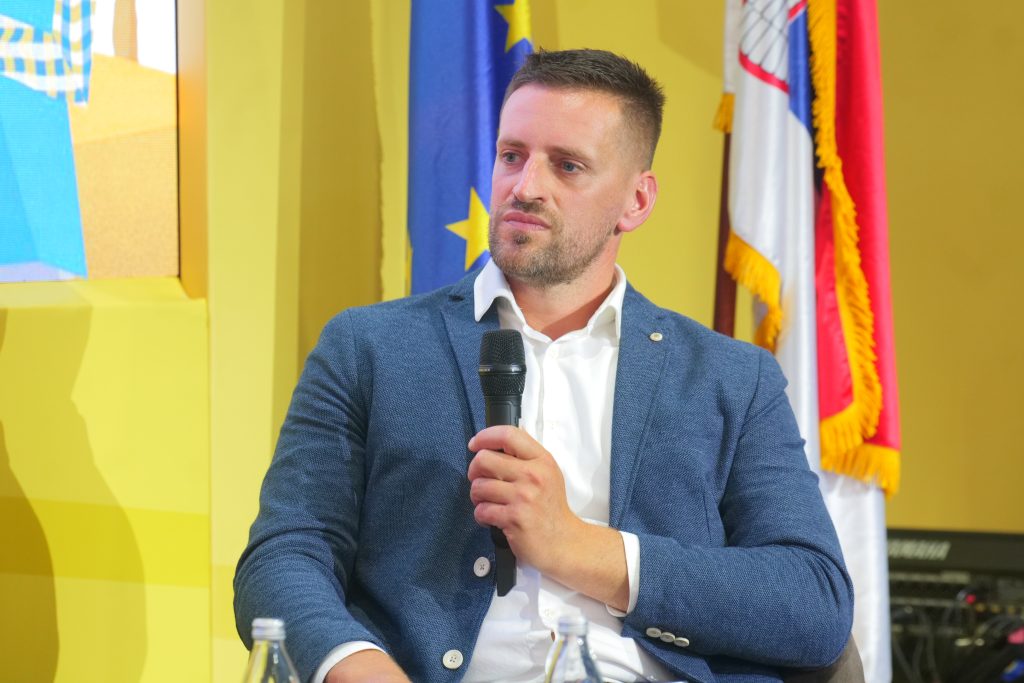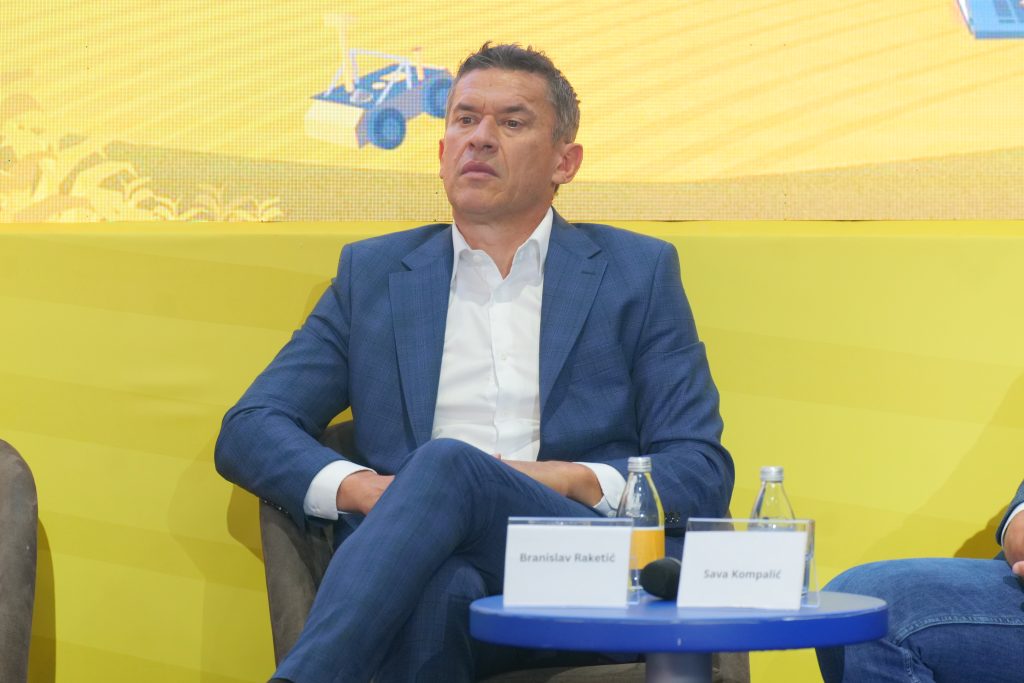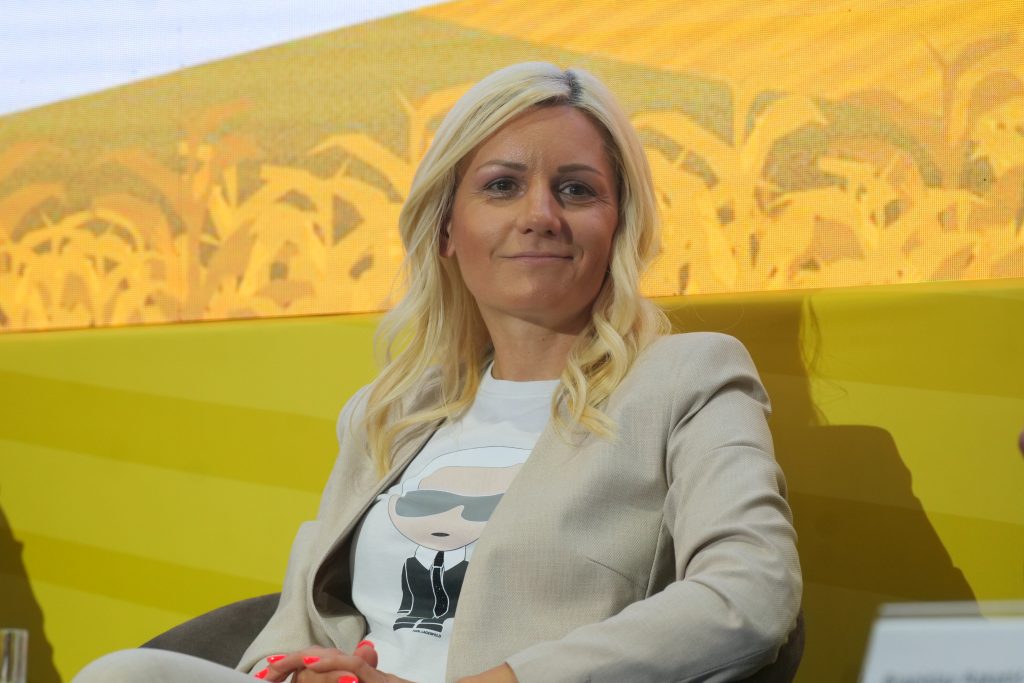The food sector in Europe is regulated to protect consumers from possible food-related risks, while leaving room for companies to innovate. Serbia is on the path of harmonizing rules and regulations with the EU, so that citizens have the healthiest food possible, and producers can expand their market.
There is a separate body at the European Union level that deals with various topics of food safety; it is the European Food Safety Authority (EFSA), an organization based on science, which protects and informs consumers.
The quality of food in Serbia and the European Union was discussed within the EU Pavilion, at the Agricultural Fair. Andrej Papić from the EU Delegation in Serbia, Branislav Raketić from the Ministry of Agriculture, Forestry and Water Management, Bojana Stojanović, in charge of quality control at the company “Lidl”, and Sava Kompalić – agricultural producer – offer their insights on this topic.
Andrej Papić referred to the legal framework: he says that significant portion of legislation on food safety in Serbia is harmonized with those in the European Union. However, full harmonization of legal framework is necessary:
“One of the laws, on official controls, that is, on inspections, needs to be harmonized with the European Union practices. It is a complex task because the regulations in the EU change from time to time. There is a group of laws that I hope will be passed in the next few years to harmonize the legal framework.”
The harmonization will contribute to smooth trade on the large European Union market – reminds Papić, and says that the value of exports from Serbia to the EU increased many times from year to year, but there is room for this trade exchange to increase even more.
“The value of exports from Serbia to the EU has significantly increased from year to year. Last year, that value amounted to EUR 2.2 billion.”
One of the tools that provides support to farmers, producers and processors is the IPARD programme, he concluded.
Sava Kompalić, a farmer from Deronje, says that – as a food producer – he feels a great responsibility:
“For me, it is a responsible position. Food safety regulations must be followed. We as farmers have to try to follow the rules in order to be competitive and have the right products. When you work in line with the rules – quality is guaranteed, and therefore the placement is guaranteed as well.“
Food is the best way to rebrand our country, believes Branislav Raketić. He added that it is very important that the marketed product is good and of high quality.
With the exception of wine and alcoholic products, 51 products in Serbia are protected by a designation of geographical origin, and it is important to harmonize legislation related to geographical origin with the EU, so that Serbian products could receive such a specification on the larger market.
We need to promote our producers – briefly concludes Raketić.
There are other quality labels, such as the “Serbian quality” label, which is one of the ways the Ministry wants to support producers and help them market themselves in the best possible way.
He emphasized the importance of organic production, and the role that digital marketing plays in marketing small organic food producers.
Speaking about the support of domestic producers, Bojana Stojanović points out that “Lidl” often promotes small producers through campaigns, and it also contributes to the export of domestic products to the European market. According to her, through the “Lidl” chain of stores, Serbian products worth a million euros are sold annually.
Professor Nebojša Momirović, from the company “Zeleni hit”, spoke about the quality of food, primarily vegetables and fruits, and the importance of proper cultivation and production. He emphasized the importance of sustainable agriculture through three important parameters: “zero residue, zero waste, zero kilometres”.
“Zeleni hit” was presented as part of the presentation of the Embassy of the Kingdom of the Netherlands in the EU Pavilion.
Don’t forget – the European Union Delegation to Serbia hosts the EU Pavilion in Hall 1 of the Novi Sad Fair from Saturday, May 18, to Thursday, May 23. During the Fair, visitors can attend over 40 info panels and workshops, where numerous experts will discuss quality food production, animal health, crop seed production, technology innovation, sustainable agriculture, and other current topics.
The EU Pavilion will host a special treat, EU Kitchen: We invite all visitors to taste the flavours of different European cuisines prepared by chefs – EU Member States’ diplomats. This unique gastronomic event will allow visitors to enjoy authentic dishes and learn more about the culinary heritage of the European Union.
The full programme is available on this link.
The European Union supported Serbian agriculture with more than EUR 150 million before the start of IPARD III with the allocation of EUR 175 million of EU support. The ongoing IPARD III programme will bring even more opportunities for Serbian farmers and another EUR 288 million of EU support. The main objectives of IPARD support include increasing the competitiveness of Serbian farmer, preserving the environment and biodiversity, supporting rural businesses and communities, and developing rural infrastructure.

